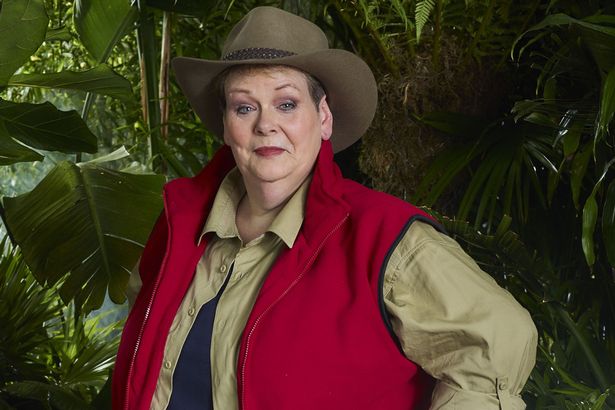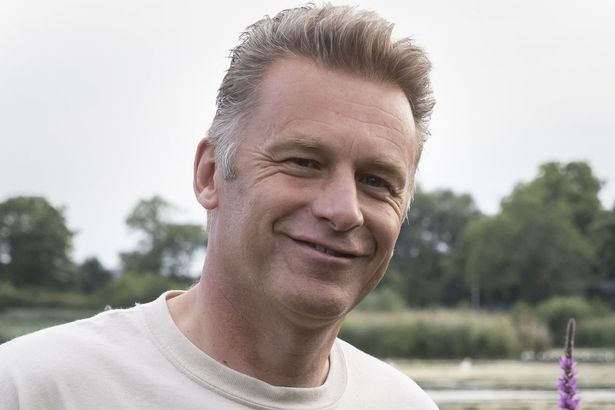Fans of I’m A Celebrity… Get Me Out of Here! have watched as The Chase “Governess” Anne Hegerty opens up about her autism.
The 60-year-old has told how she was diagnosed with Asperger’s in 2003, at 45.
Just like Anne, and many other people, professional speaker Dee McAlinden, 51, was not diagnosed with the syndrome until adulthood.
Bubbly, articulate and successful, she says: “I was 48. It was life-changing. So much suddenly made sense.”
Viewers saw Anne struggle with a Bushtucker Trial involving slime and creepy-crawlies. She has been medically exempted from other challenges.
Dee, also an author and a teacher who supports those with autism, says: “Just watching Anne doing the trial I could see myself having the same reaction, being disgusted by the textures and thought of worms getting into her ears.
“It’s good she’s been signed off from doing some of the trials, but I’m sure she’ll have mixed feelings about that. She’ll want to compete but, being hyper-sensitive, it would be very disturbing.”

It is estimated around 700,000 people are on the autism spectrum in the UK.
TV naturalist Chris Packham, 57, also found out he had Asperger’s in his 40s and made a show about his experience.
Studies are under way to find out how many people are diagnosed later in life.
One reason for this happening could be that the number of males and females on the autism spectrum is far more equal than previously thought.
Carol Povey, of the National Autistic Society’s Centre for Autism, said: “We need more openly autistic women like Anne Hegerty using their public profile to share their experiences.
“The numbers of inquiries to our helpline about getting a diagnosis have increased since the new series of I’m A Celebrity aired.”
Carol went on: “Professionals often don’t understand the different ways autism can manifest in women and girls, with many going through their lives without a diagnosis and an understanding of why they feel different.

“Girls are often better at developing ways to mask what we traditionally think of as the signs of autism.
“This can lead to a great deal of stress, and many develop secondary problems such as anxiety, eating disorders or depression.
“A diagnosis can help unlock educational and employment support.”
Dee, of Epsom, Surrey, knows what it is like trying to fit in to an everyday world when you have an autism spectrum difference.
She believes it is incorrect to call it a disorder. Dee said: “As a child, I hardly ever spoke outside the home. I was put in special education groups and labelled stupid.
“I had this rich world in my head of thoughts and feelings, but it could not come out.
“I was very quiet up until my mid-20s.”
Sensory overload of lights, sounds, textures and flavours felt like an assault. Workplaces were also tough. Dee said: “I used to go into my zone. I was very efficient and committed, but found small talk boring and confusing.
“One day someone brought a baby in. Everyone was cooing round. I love my own kids to bits but it was bewildering. I kept working and got told I was mean.”
Then Dee stumbled across an article on autism, went to her GP and was diagnosed. She said: “I felt broken. But it’s a positive, not a negative.” Relationships improved. Dee said: “Everything in my world is planned from beginning to end.
“I can’t cope with interference. My husband and I used to have the same argument about him turning off the heated laundry rail in the utility room. I’d get so annoyed I’d start screaming. He understands my triggers and I understand he’s not doing it to ruin things.”
Dee firmly believes Anne can win the show. She said: “If she acclimatises and finds her little routine, she’ll do really well. It’s so good she can be open. That relieves some of the social pressures.”
Her advice to others is to ignore the word diagnosis. She added: “You’re not ill, these are your strengths.”
- Dee’s ASD consultancy Thrive With Autism supports families, schools and businesses. Her book Downloading Grey Thinking can be bought on Amazon. See www.deemcalinden.weebly.com.
